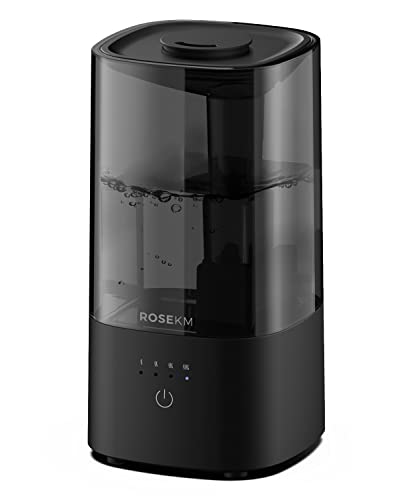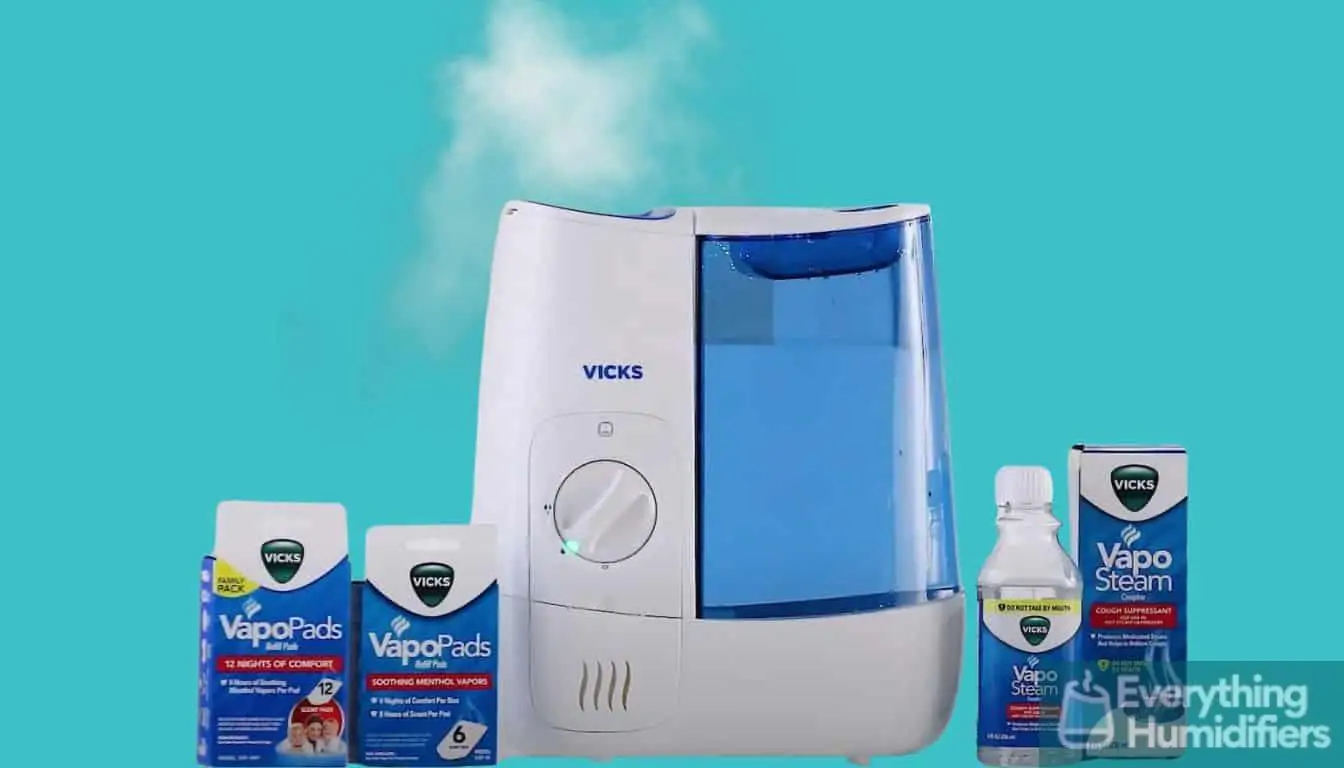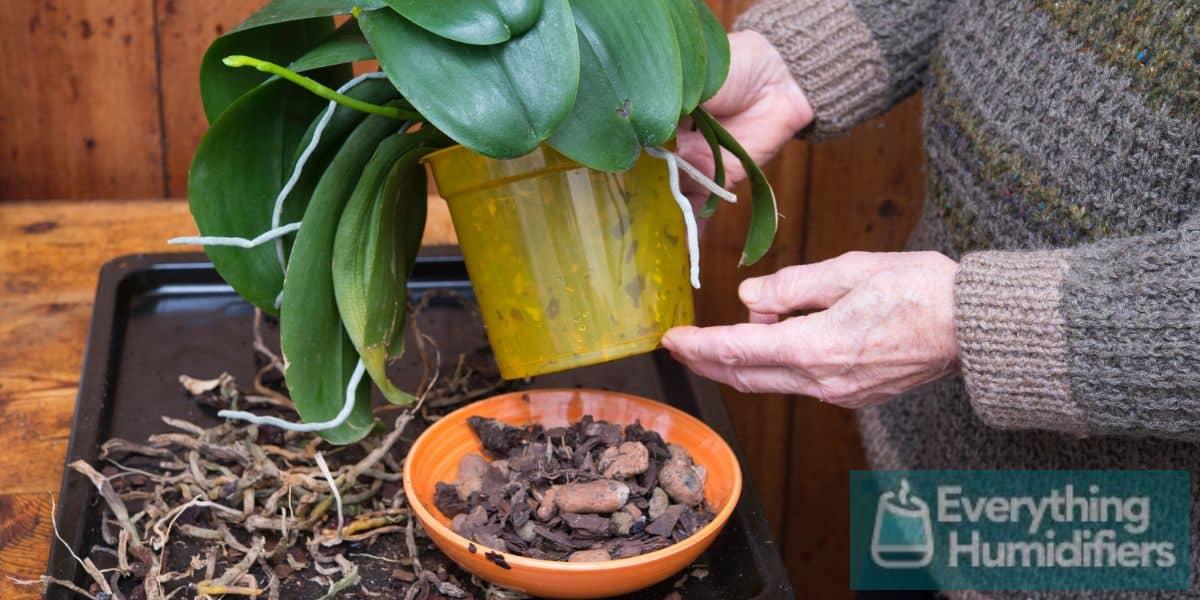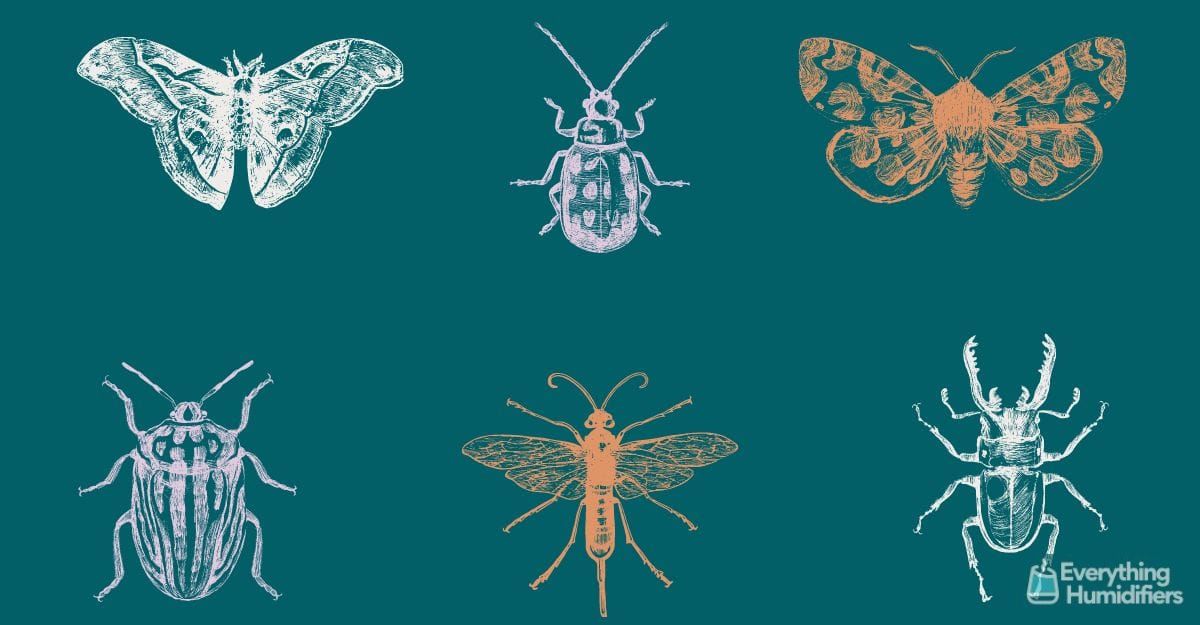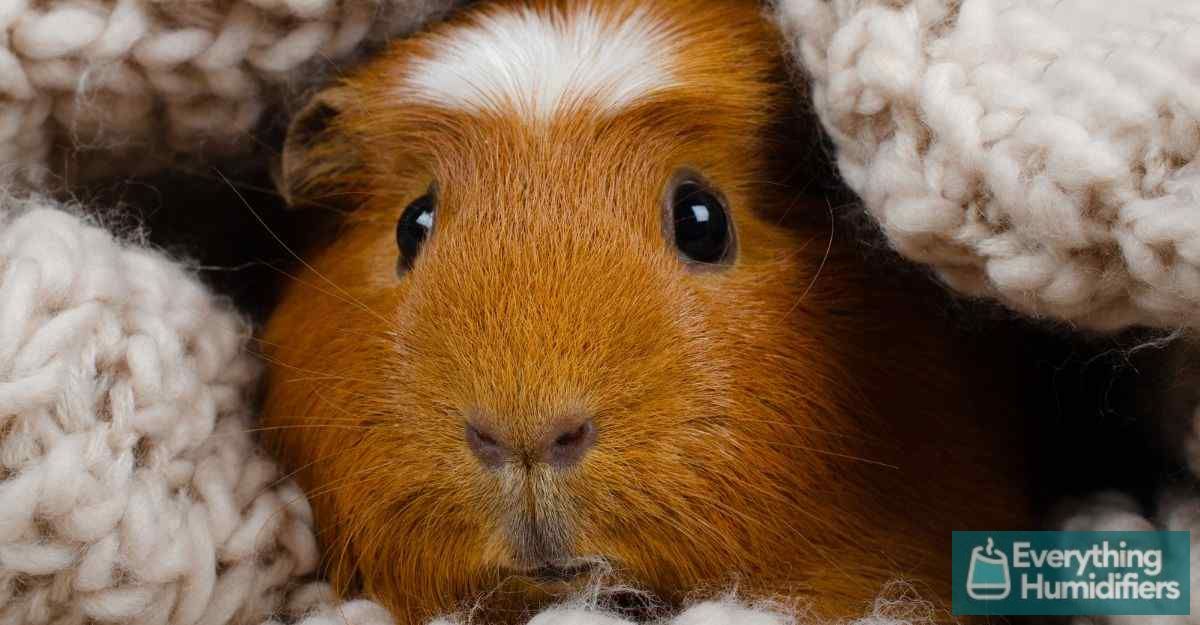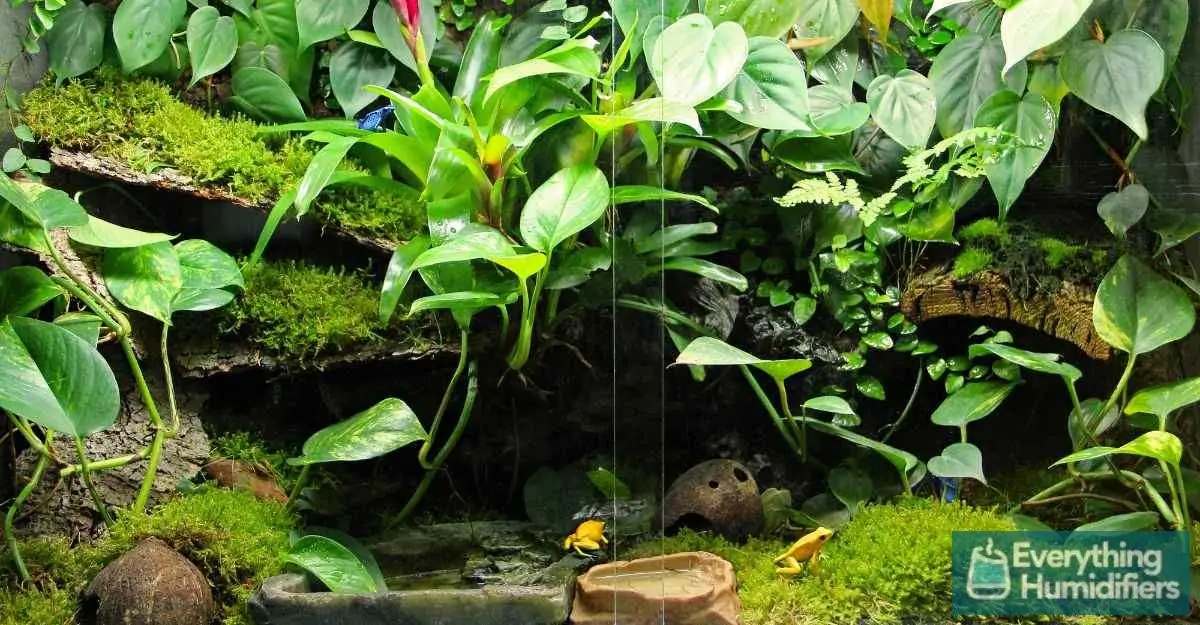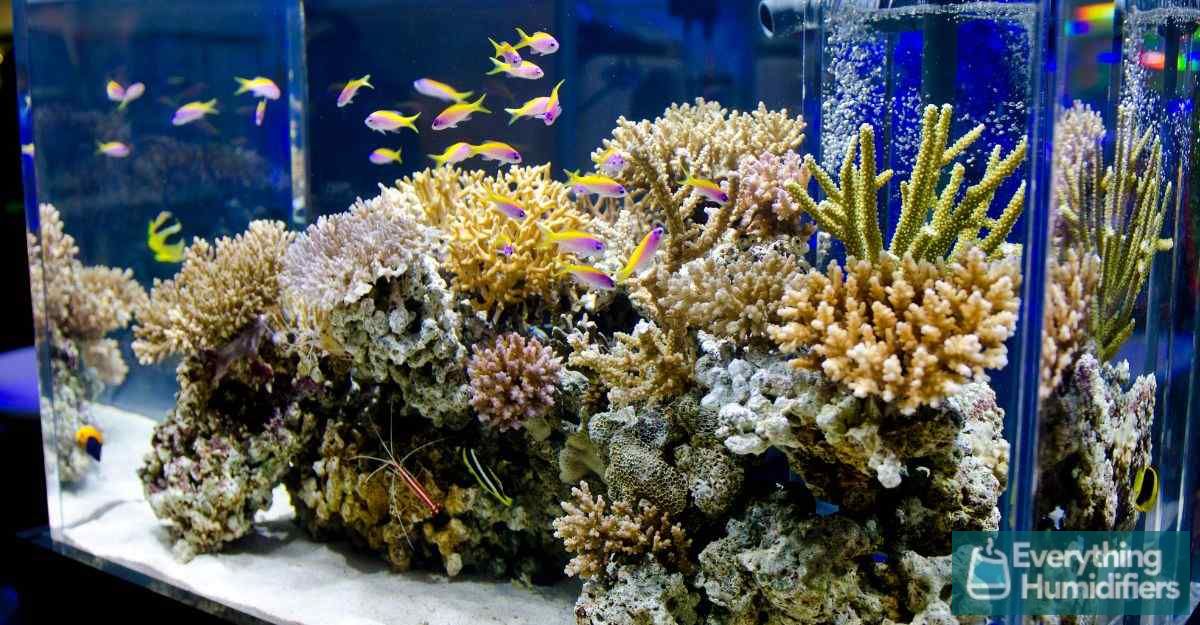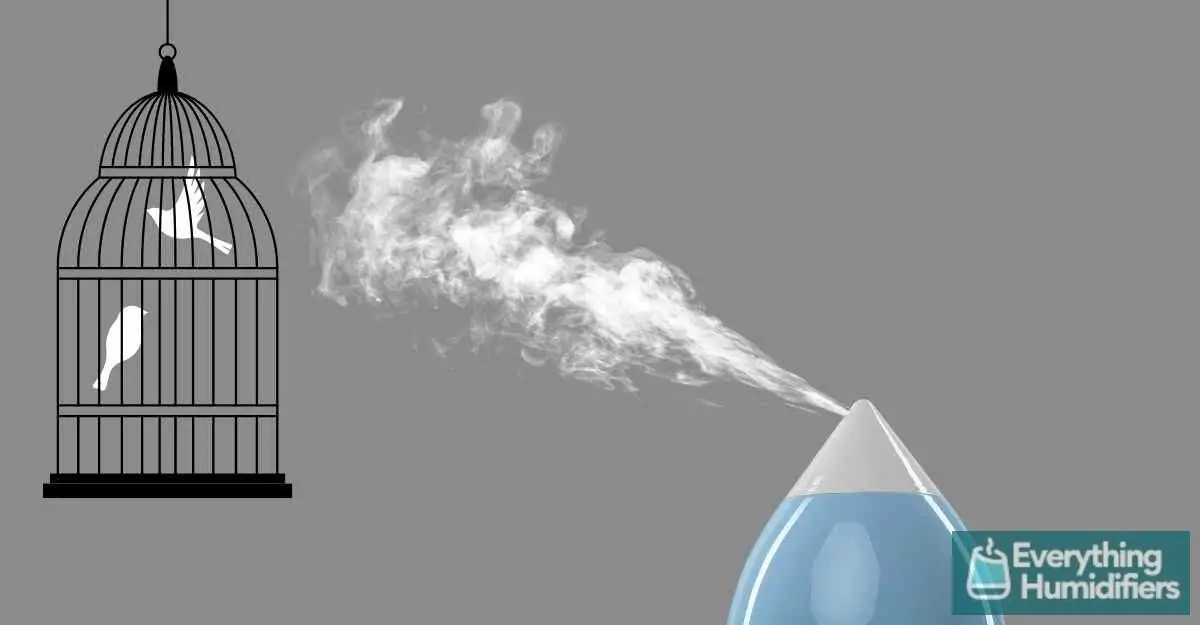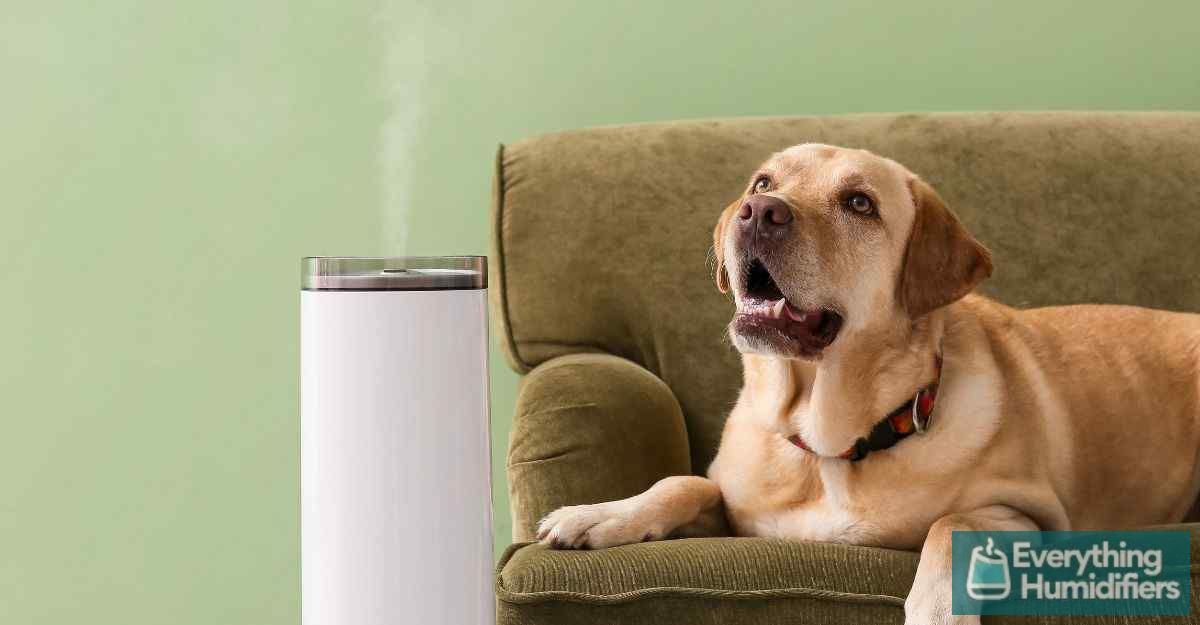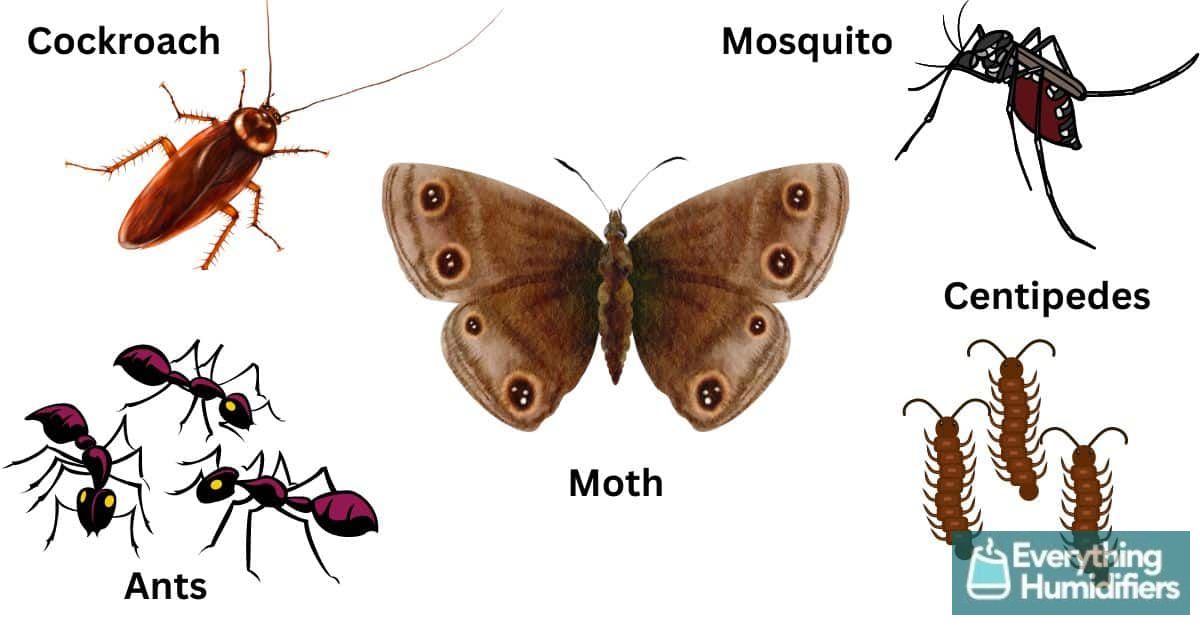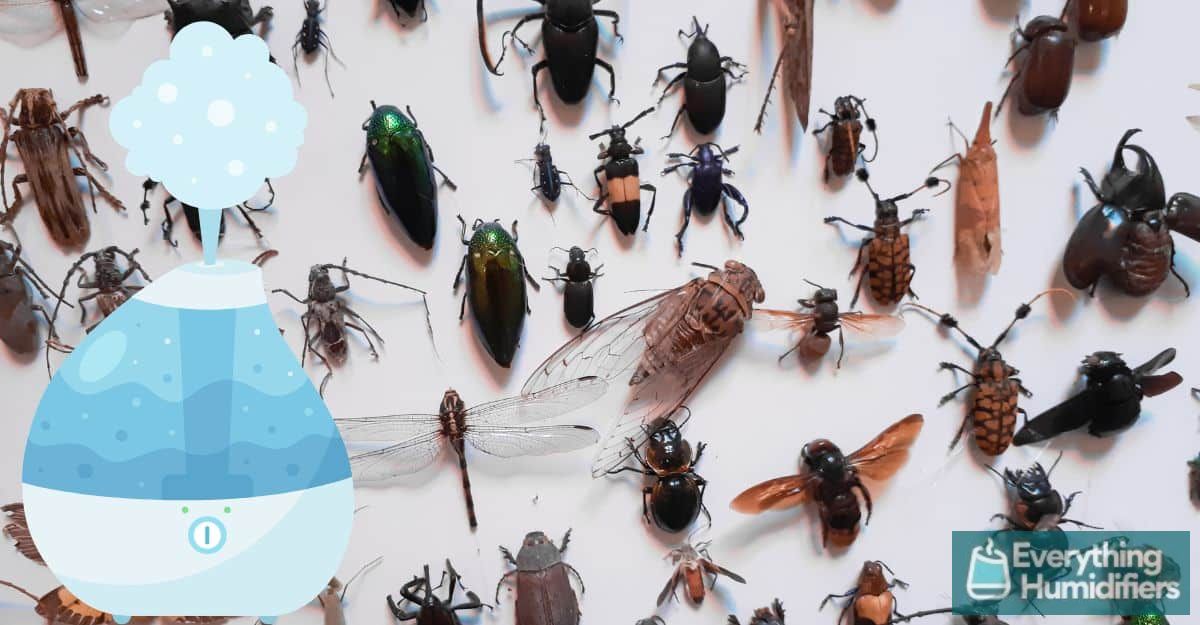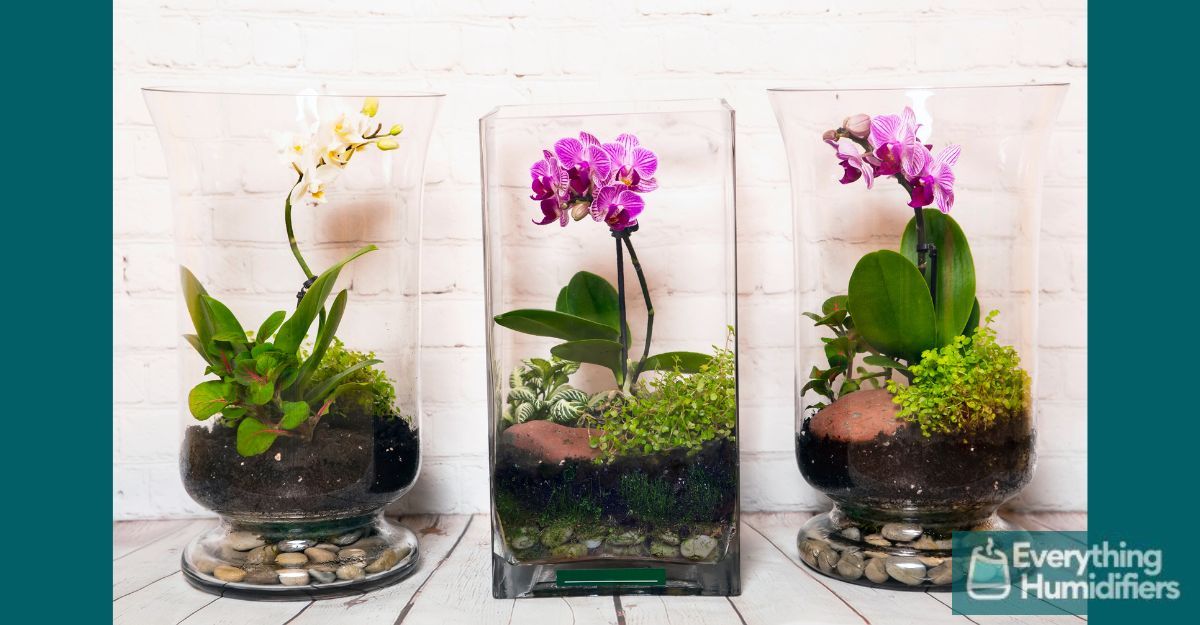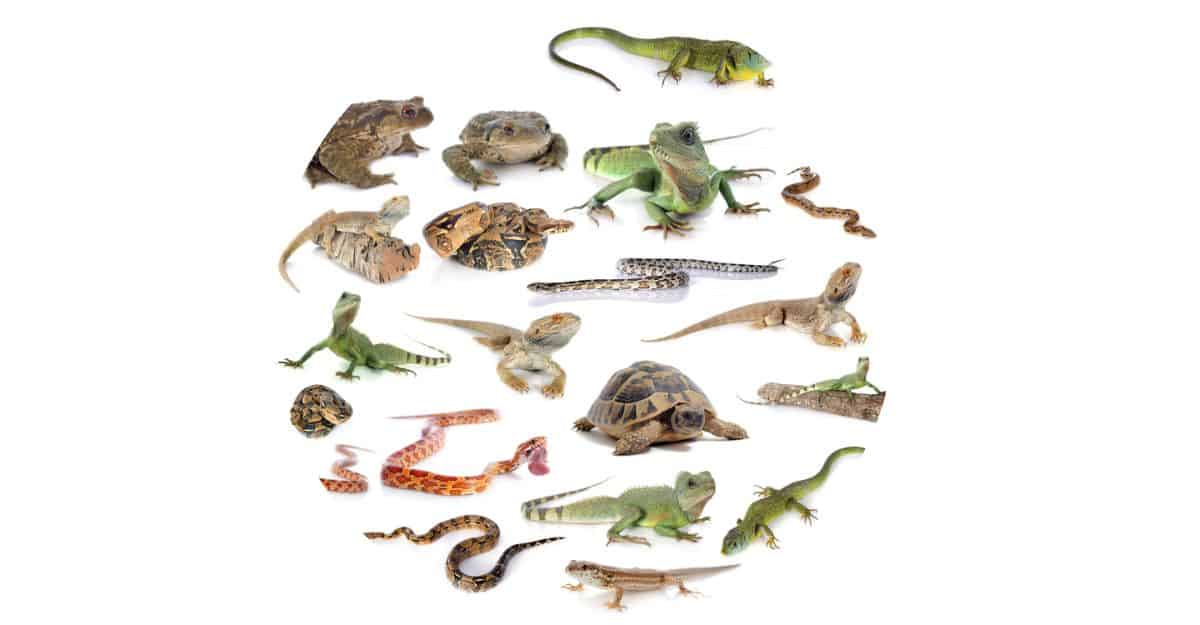Installing a humidifier in your home can go a long way toward creating the perfect comfortable environment for your family and your pets. Dogs, cats, birds, reptiles, small mammals, and even insects will benefit from the correct humidity levels.
Pets can suffer from dry and itchy skin, dry coats, eyes, respiratory issues, and infections. Humidifiers for pets can reduce these problems by adding moisture to the air.
Some exotic pets, like birds, reptiles, and insects, must have high humidity, and controlling humidity levels is vital for their comfort and health.
Key Takeaways
- Understanding Humidity: Learn the importance of humidity levels for your pets and how it affects their health and comfort.
- Benefits for Dogs: Find out how humidifiers can improve respiratory health, skin condition, and overall well-being for your canine friends.
- Benefits for Cats: Discover how humidifiers can prevent respiratory issues, dehydration, dry skin, and dull coats in your feline companions.
- Benefits for Birds: Understand why birds require controlled humidity levels for their respiratory health, feather maintenance, and molting.
- Benefits for Reptiles: Learn about the specific humidity needs of reptiles and how reptile humidifiers can create the right environment for different species.
- Benefits for Small Pets: Explore how maintaining optimal humidity can enhance the respiratory health and overall well-being of small pets like hamsters, rabbits, and guinea pigs.
- Benefits for Insects: Even insect enthusiasts can benefit from humidifiers, as they support molting, reproduction, feeding, and thermal regulation.
- Benefits for Frogs: High humidity is essential for amphibians, helping them stay hydrated, maintain skin health, and support their unique respiratory needs.
- Choosing a Safe Humidifier: Find out which types of humidifiers are safe for pets and learn essential safety tips to ensure your pets’ well-being.
- Additional Tips: Get insights into maintaining and adjusting humidity levels, keeping your humidifier clean, and avoiding harmful additives like essential oils.
- Research and Expertise: Discover the importance of researching your pet’s specific humidity needs and using online resources and veterinary guidance to create the perfect environment.
Understanding humidity
Humidity refers to the amount of water vapor present in the air. In a typical household, the humidity level ranges from 40% to 60%.
This can be influenced by factors like air conditioners, HVAC systems, climate, and ventilation.
You might be wondering how to determine the humidity in your home. It is simple! A budget-friendly hygrometer is a nifty device that displays the humidity percentage on a small screen.
Like humans, your pets are affected by humidity. Low humidity creates dry air that lacks moisture.
Depending on your type of pet, this can lead to dry skin, dry eyes, respiratory problems, coughing, dry feathers, dehydration, inability to shed skin, and changes in behavior.
Let’s look at specific types of pets to understand how controlling humidity can help to keep them healthy.

Humidifiers for Dogs
Low humidity and dry air can have adverse effects on our furry friends. Dogs may experience dry skin, dry eyes, a lackluster coat, and increased allergy and respiratory issues.
Breeds such as bulldogs and pugs, with excess tissue around their neck and throat, can suffer more severe breathing problems when the air lacks moisture.
Low humidity creates an ideal environment for harmful microorganisms to thrive, leading to infections, allergies, and respiratory irritations in dogs.
How does a humidifier help dogs?
Enhanced respiratory health: Dry air inflames nasal passages, leading to sneezing and scabs. Moist air eases symptoms, softening mucus and improving flow.
Soothes dry skin: Like us, dogs’ skin can dry out, becoming flaky and irritated. Scratching can cause hair loss and infections. A humidifier moisturizes and soothes dry skin.
Softens dry coats: Dry conditions make a dog’s coat brittle, flaky, and dull. A humidifier adds moisture, making the coat supple, smooth, and shiny.
Reduces infection risk: Allergens, microorganisms, bacteria, and viruses thrive in dry air, causing allergies, coughs, and respiratory issues. Moist air lowers the risk of infection.
Relieves snoring: Dogs snore due to colds, blocked sinuses, or nasal obstructions. A humidifier keeps nasal passages moist, reducing snoring.
You might also be interested in our other articles about dogs and humidifiers:
Improved Comfort: Dogs and Humidifiers
8 Signs Your Dog may need a Humidifier

Cats and humidifiers
Cats have attitude, and your cat will soon let you know if she is not purrrfectly happy!
Dry air can cause various cat health issues, including respiratory problems, dry skin, dull coats, and dehydration.
Dry air also increases static electricity, which can cause anxiety and distress for your feline companion.
How does a humidifier help cats?
- Prevents respiratory issues – Dry air dries out nasal mucus, causing inflammation, sneezing, and scabs. A humidifier keeps mucus soft and flowing.
- Prevents dehydration – Adequate humidity promotes hydration, which is crucial for cats prone to urinary tract problems.
- Alleviates dry skin – Increased moisture relieves itchy patches, preventing cats from scratching and causing wounds.
- Enhances a healthy coat – Dry air makes a cat’s coat brittle and dull, leading to breakage. Humidity keeps it smooth, supple, and shiny.
- Reduces infection risk – Optimal humidity minimizes allergens, microorganisms, and viruses, reducing respiratory issues and maintaining a safer environment.
- Reduces snoring – Humidifiers help moisten the air, reducing snoring in cats caused by nasal blockages.
- Reduces static electricity – Dry air generates static electricity, causing discomfort for cats. A humidifier combats this issue by increasing moisture.
For more detailed information on cats and humidifiers, read our article:

Birds and humidifiers
Birds need controlled humidity levels in their environment for optimal respiratory health and feather maintenance.
Adequate moisture prevents their feathers from drying out, which is crucial for their well-being. Low humidity can also disrupt the natural molting process.
Many exotic bird species live naturally in high-humidity regions like tropical forests and rainforests, requiring higher-than-average humidity to remain happy and healthy.
Installing a humidifier to support your feathered friends will allow you to maintain the ideal humidity levels.
How does a humidifier help birds?
Regulates body temperature: Birds control their body temperature by adjusting blood flow to the skin. Maintaining constant humidity helps them avoid extreme heat or cold conditions.
Prevents dehydration: Humidifiers help birds retain moisture, preventing excessive water loss and dehydration in hot and dry environments.
Promotes respiratory health: Adding moisture with a humidifier prevents dehydration of the airways, ensuring birds can breathe comfortably.
Protects skin and feathers: Dry air makes feathers brittle and prone to breakage. A humidifier prevents dryness, reducing the risk of feather-related issues.
Aids in molting: Moist air during molting makes the process more comfortable and ensures new feathers are soft and supple.
Reduces infection risk: Maintaining proper humidity levels minimizes the presence of allergens, microorganisms, viruses, and bacteria, reducing the risk of respiratory infections.
For more detailed information on birds and humidifiers, take a look at our article:
Are Humidifiers Good for Birds?

Reptiles and humidifiers
Are you considering bringing home exotic pets like a lizard, snake, or turtle?
You will need to assess the humidity levels in your home to create a suitable environment for these fascinating creatures. It’s also good to inform your visitors to avoid unexpected surprises!
Reptiles have different humidity needs, with snakes, lizards, and certain turtle species requiring higher humidity levels.
Reptiles like geckos and bearded dragons can tolerate lower humidity levels and probably don’t need a humidifier.
Unlike cats, dogs, and birds, where a traditional home humidifier will suffice, reptile humidifiers are designed to be kept inside your vivarium, tank, cage, terrarium, or aquarium.
In this way, they create high humidity conditions close to the creature’s natural habitat. Reptile humidifiers include misters, foggers, ultrasonic humidifiers, and automatic misting systems.
How does a humidifier help reptiles?
- Helps with shedding skin – Low humidity makes it difficult for reptiles to shed skin. If you observe dry, flaky, or stuck shed skin, you need to increase the humidity in the enclosure.
- Helps with respiratory issues – Adequate moisture in the air prevents wheezing, gasping for air, and other signs of respiratory distress. It also protects the respiratory system and wards off infections.
- Prevents sunken or dull eyes – Dehydrated reptiles can display signs of sunken or dull eyes. Moist air will alleviate this problem.
- Prevents lackluster skin – Low humidity creates dry skin that loses elasticity and appears unhealthy. Moist air keeps skin supple, smooth, and shiny.
- Reduces drinking or soaking behavior – When reptiles lack humidity, they may exhibit excessive drinking or spend more time in their water dish trying to hydrate themselves. High humidity will prevent this.
Find out which reptiles can benefit from a humidifier in our article below:
Do all reptiles need a humidifier?

Small pets and humidifiers
Small pets are ideal for children but require attention regarding the correct humidity levels. Hamsters, rabbits, rats, mice, hedgehogs, and guinea pigs prefer average to higher humidity.
Maintaining an optimal humidity balance is essential for these pets, as it supports their skin health, prevents dryness and respiratory issues, and ensures their overall comfort.
How does a humidifier help small pets?
Enhanced respiratory health: A humidifier helps small pets breathe easier, reducing the risk of respiratory issues caused by dry air.
Improved skin and fur: Adding moisture can relieve dryness and itching, promoting healthier skin and fur for rabbits and hamsters.
Prevention of dehydration: Proper humidity levels prevent excessive water loss and keep small pets hydrated.
Better sleep: Optimal humidity levels lead to more comfortable sleep for small pets, promoting rest and rejuvenation.
Overall wellness: A humidifier creates a comfortable and healthy environment, benefiting the respiratory system, skin, hydration, and overall well-being of your small pets.
For more detailed information about small pets and humidifiers, take a look at our article below:
Are Humidifiers Safe for Small Pets? A Guide for Pet Owners

Insects and humidifiers
Keeping creepy crawly pets may be different from everyone’s idea of fun!
But, if you are into spiders, beetles, praying mantises, cockroaches, stick insects, butterflies, or moths, you must know that high humidity is vital for reproduction, hydration, molting, and respiratory functions.
How does a humidifier help insects?
- Molting: Adequate humidity prevents dehydration and maintains structural integrity during molting, allowing insects to shed old exoskeletons and grow.
- Reproduction and Development: High humidity creates favorable conditions for successful insect mating, egg-laying, and hatching, supporting reproduction and development.
- Feeding and Digestion: High humidity aids in softening and breaking down insect food, facilitating feeding, digestion, and efficient nutrient absorption.
- Thermal Regulation: Insects regulate body temperature externally, and high humidity helps prevent excessive moisture loss through their exoskeletons, allowing them to withstand hot and dry conditions without dehydration or overheating.
Find out more in our article, Meet 12 Pet Insects That Like Humidity and Make Great Pets

Frogs and humidifiers
High humidity is vital for pet frogs. Amphibians need humidity to help breathe, absorb moisture through the skin, stay hydrated, shed, and reproduce.
How does a humidifier help frogs?
Hydrates skin: Moisture prevents skin dryness, reducing the risk of infections.
Supports respiration: Humidity enables efficient gas exchange through the skin, vital for frog survival.
Maintains body temperature: Humidity helps regulate metabolism and ensures optimal physiological functioning.
Reproduction: Moist habitats are crucial for frog eggs and tadpole development.
Assists shedding: Adequate humidity keeps frog skin moist, facilitating proper shedding and preventing skin problems.
Do Frogs Need a Humidifier for Optimal Health? our article helps determine which frogs will benefit from some humidity.

Aquariums and humidifiers
Humidifiers are not required for your pet fish!
However, a fish tank can perform the same function as a humidifier with less desirable results.
Evaporation from the tank can create high humidity and excess moisture that can damage possessions, furniture and impact health.
Look out for these signs:
- Condensation on the inside of your windows or mirrors.
- Mold and mildew growing on walls, curtains, or furniture.
- Musty smells in the house.
- People showing signs of respiratory issues or allergies.
- Your hygrometer reading is above 60%.
If your aquarium is causing high humidity, here are a few tips that can help:
Securely cover the tank to reduce evaporation.
- Install a hydroponic fan.
- Install a dehumidifier to extract moisture from the air.
- Ensure that you have proper ventilation.
For more detailed information on aquariums and humidifiers, take a look at our article:
Will an Aquarium Increase Humidity? Does it affect your Fish?
Choosing a humidifier for pets
The following type of humidifiers are considered to be safe to use around pets:
- Ultrasonic humidifiers: They use high-frequency vibrations to produce a fine mist.
- Evaporative humidifiers: Cool mist humidifiers use a fan to push air through a wet wick, which evaporates water into the air.
The following type of humidifiers are considered NOT safe for pets:
Warm mist humidifiers: They use hot water and emit hot steam. They can be dangerous if they are touched or fall over.
For more detailed information about humidifiers, take a look at our humidifier guides below:
How Humidifiers work, and their uses
HUMIDIFIER BUYERS GUIDE – 16 Things to Consider Before you Buy
Humidifier Safety – ensure that your humidifier is safe for your pets
The benefits of using a humidifier do outweigh the risks. However, care must be taken to ensure you use your humidifier safely.
Do not over-humidify: Too much humidity creates excess water vapor in the air, causing condensation on windows, damp walls, musty odors, and damage to furniture and fittings.
Clean your device regularly: The combination of warmth and water encourages the growth of harmful microorganisms. Especially mold and bacteria.
Ensure that you clean your humidifier regularly. Do not clean your tank with harmful chemicals. Follow the manufacturer’s guide for replacing filters timeously.
Prevent mineral build-up: Tap water contains unhealthy mineral build-up in the tank. Use distilled water instead of tap water in your humidifier to prevent this.
Find a safe position: Make sure your humidifier is placed where your pets cannot knock over. If it is inside a cage, ensure it is out of reach and adequately sealed off.
Don’t add essential oils: They can be toxic to pets.
Check the noise level: Ensure that the noise levels are not disturbing for people or your pets.
For more detailed information about humidifier safety, take a look at these articles:
Stay in your ‘comfort zone’ with a Hygrometer
Avoid Humidifier Cleaning Mistakes
Step by Step Guide to Remove Mold from humidifier
Safe and Sound Humidifying: Tips For Preventing Mold

Do the research and become an expert
Humidifiers can significantly improve the living conditions of your pets, preventing many health problems and keeping them safe and happy in environments close to their natural habitat.
Research is crucial when caring for exotic pets with specific requirements. Use online resources, join local groups, and consult with a veterinarian to gather information about your pet’s ideal humidity levels.
Explore our detailed blog articles on your specific type of pet and learn all you need to know.
This will give you the confidence to use a humidifier to its fullest potential and create the perfect environment for your furry, scaly, creepy, slimy, scary, or simply adorably cute pet.
To brush up on your knowledge, take a look at these websites:
Amateur Entomologists’ Society has some great insect care sheets
Xerces Society for Invertebrate Conservation – Keeping Monarchs Wild
Love My Chinchilla – Ideal Humidity for a Chinchilla: Stats & Tips
SOCIETY FOR THE STUDY OF AMPHIBIANS AND REPTILES (SSAR) – Has a Regional Society List if you are looking for contacts near you
The American Board of Veterinary Practitioners (ABVP) provides a listing of board-certified avian veterinarians
The Association of Avian Veterinarians maintains a list of vets who practice avian medicine
The Humane Society of the United States – Keep pets safe in the heat article
Frequently Asked Questions
Are humidifiers safe for dogs?
Yes, humidifiers are generally safe for dogs. However, keeping the humidifier out of your pet’s reach and monitoring the humidity levels to prevent discomfort or potential issues is essential.
How can a humidifier help soothe my pet?
Humidifiers can add moisture to the air, which can help soothe dry skin, improve breathing, and reduce irritation for your pets.
Can I use a humidifier around cats, birds, reptiles, and other small pets?
Yes, humidifiers can benefit various pets, including cats, birds, reptiles, and small pets like insects, frogs, and fish in an aquarium. Be diligent with monitoring the humidity levels according to your pet’s specific needs.
How do humidifiers work?
Humidifiers release water vapor into the air, increasing humidity. This can be achieved through either cool mist or warm mist, depending on the type of humidifier.
How do I keep my humidifier clean for my pets?
To prevent the growth of bacteria or mold, it’s essential to regularly clean and maintain your humidifier. Follow the manufacturer’s instructions and use distilled water if possible.
Can I adjust the humidity level on my humidifier for my pets?
Many humidifiers allow you to adjust the humidity level according to your pet’s needs. However, it’s vital to consider the optimal humidity level for dogs, cats, birds, etc., and avoid excessive moisture.
Disclaimer
The information provided in this blog post is intended for general informational and educational purposes. It is not a substitute for professional advice.
The content should not be considered expert advice, and readers are encouraged to consult with qualified veterinarians or pet care specialists for specific guidance on their pets’ health and well-being.
Readers should know that individual circumstances, pet species, and specific needs may vary. The content in this blog post is not a one-size-fits-all solution, and it may not be appropriate for every pet.
It is crucial to consider your pet’s unique requirements when choosing humidifiers.
We strongly advise readers to seek advice and guidance from qualified professionals, such as veterinarians, pet care specialists, or experts in humidity control, before implementing any changes to their pets’ environment, including using humidifiers.
Professional consultation ensures that decisions align with the specific needs of each pet.
The blog and its authors are not responsible for any direct or indirect consequences or damages from using the information presented in this post.
Readers assume full responsibility for their actions and decisions regarding the care of their pets, including using humidifiers, and hereby release the blog and its authors from any liability.
Every effort has been made to provide accurate and reliable information in this blog post.
However, errors, inaccuracies, and omissions may occur. The blog does not guarantee the completeness, accuracy, or timeliness of the content, and readers should use the information at their discretion.
The content of this blog post may be subject to change without prior notice. Readers are encouraged to review the most recent and updated version of the content to ensure they have the latest information available.




